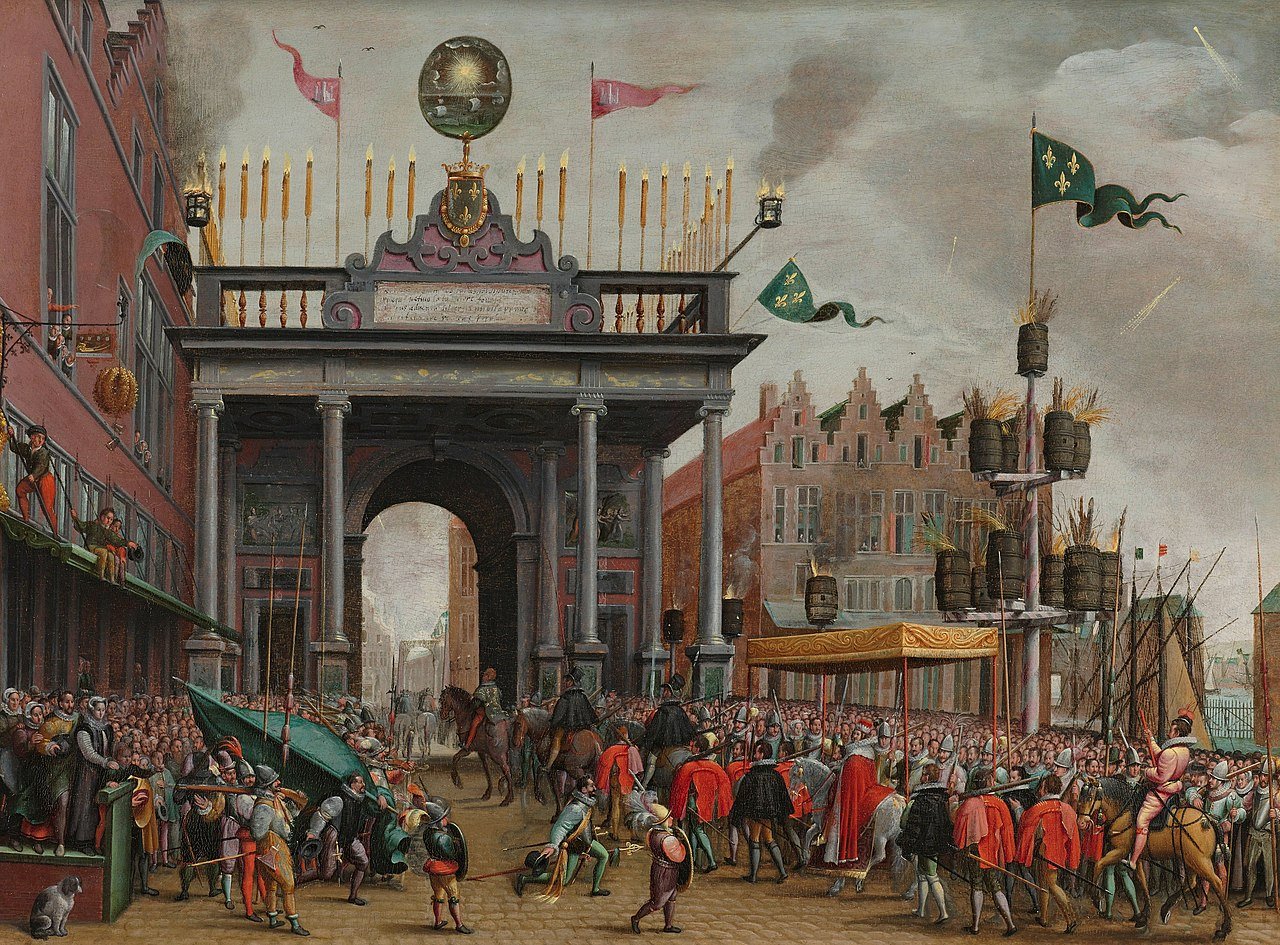
The Many Would-Be Kings of the Dutch
Thought it would come to be well known as a republic, the statesmen and soldiers that fought to establish an independent Dutch state certainly imagined - at first -that their new country would have a sovereign Prince at its head.
The Dutch didn’t quickly or easily become a republic.
After declaring their independence from the Spanish king Philip II in 1581’s Plakkaat van Verlatinghe (The Placard of Abjuration), the next course of action on the mind of the rebellious States General was to find a new, replacement “prince.”
Elizabeth I had already refused offers of sovereignty, and to proclaim William of Orange, figurehead of the rebellion, prince or protector of the Dutch provinces would appear wildly self serving. It simply would not do on the international stage.
The great Protestant lords of the Holy Roman Empire were largely playing a game of wait and see, save for Johann Casmir, the younger brother of the Elector Palatine. He was a hard-charging, would-be deliverer of the Protestant cause good for spectacle, but not a serious cantidate.
So the choice for a royal protector and figurehead – if not yet outright sovereign – came to settle on Francis, Duc d’Anjou. As French royalty and member of the moderate “politique” faction attempting to find a peaceful middle way in the midst of his own country’s wars, it was hoped Francis could be seen as an acceptable compromise choice.
So in 1582, after much negotiating, Francis agreed to the title of “Protector of the Liberty of the Netherlands” – close enough to princely sovereignty over the Low Countries – and proceeded to make a series of highly ritualized and celebratory Joyous Entries across the great cities of Flanders and Brabant.
It is such a scene we see in this anonymous contemporary painting, complete with parade, crowd, local militia paying respects, and a massive triumphal arch erected for the occasion.
Yet, Francis was not to last. Frustrated at his lack of real power and authority and constant negotiation and struggle with the States General, Francis erupted into military action against cities that were ostensibly in homage to him in what would be called the “French Fury.”
He would later depart the low countries in scandal, never to return, but never giving up his princely title. He would die shortly thereafter.
Not long later, William of Orange would be assassinated, and Habsburg forces would push the rebellious Dutch to the very brink. it was at this point in 1585 that Elizabeth would finally agree to substantial military assistance and send the Earl of Leicester as her deputy to the Low Countries.
Much like Francis before him, Robert Dudley let the prospect of power get to his head and fail to successfully negotiate the complex political realities of governing the nascent Dutch state (the story of which, much like Francis, must be a post for another time).
He would depart three years later after exacerbating political divisions and proving to be ineffectual militarily (a point he sorely complained was due to the miserly financial policies enforced upon him).
The Dutch would never again search for a foreign prince after Robert Dudley’s flight in 1588, and that same year, the word “republic” began to see greater use in both popular prints and more scholarly works arguing for the future of the Netherlands.
William of Orange’s son Maurice would soon make history with ten years of reversing Spanish military gains. At the same time, the great statesman Johan van Oldenbarnevelt would carefully hold the reigns of government while the Dutch began to solidify their sense of national identity and self-governance.
Thus, the Dutch Republic was born.
